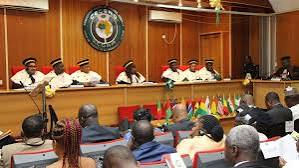The Kano State Government has reaffirmed its commitment to upholding its blasphemy laws, despite a recent ruling by the ECOWAS Court of Justice which found aspects of those laws to be inconsistent with international human rights standards. The state insists that its laws reflect the religious and moral convictions of its people and cannot be discarded in response to external judgments.
In a statement by the Commissioner for Information and Internal Affairs, Ibrahim Garba Waiya, the government emphasized that Kano, as a state within Nigeria’s federal structure, reserves the right to make and enforce laws that align with the values of its citizens. According to Waiya, the blasphemy laws are not only legal within the context of Nigeria’s constitution, but also necessary for preserving the religious integrity and peace of the society.
“We will not succumb to external pressures. Our duty is to safeguard the moral and religious fabric of our community. While we acknowledge and respect the ECOWAS Court’s decision, our laws are guided by the values and will of our people. These laws are central to maintaining public order and protecting the sanctity of our religion,” Waiya stated.
The commissioner further noted that Kano, being a predominantly Muslim state, has a duty to protect Islamic principles through its legal framework. He argued that the state’s stance on blasphemy is consistent with Nigeria’s federal constitution, which permits states to legislate on matters related to religion and morality under the Concurrent Legislative List.
The ECOWAS Court had earlier ruled that the enforcement of blasphemy-related penalties—especially where they infringe on freedom of expression or contravene international legal standards—violates the African Charter on Human and Peoples’ Rights, to which Nigeria is a signatory. The judgment reignited a national conversation about religious freedom, legal pluralism, and the balance between human rights and community values.
However, Kano officials maintain that the ruling does not override the authority of the state to legislate in accordance with the cultural and religious norms of its people. Waiya reiterated that the blasphemy laws are not arbitrary or oppressive, but rather a reflection of the deep religious convictions held by a majority of Kano residents.
“We fully acknowledge the authority of the ECOWAS Court, but we must make it clear that our legal obligations also lie with our people—people who have elected us to protect not just their lives, but also their beliefs. Our laws are valid within the Nigerian legal framework, and we stand by them,” he said.
Kano’s stance brings into sharp focus the ongoing tension between international human rights bodies and the autonomy of sub-national governments in federations like Nigeria, where religious and customary laws often coexist with civil statutes. As the debate continues, the state government has made it clear that there will be no retreat from its position.
